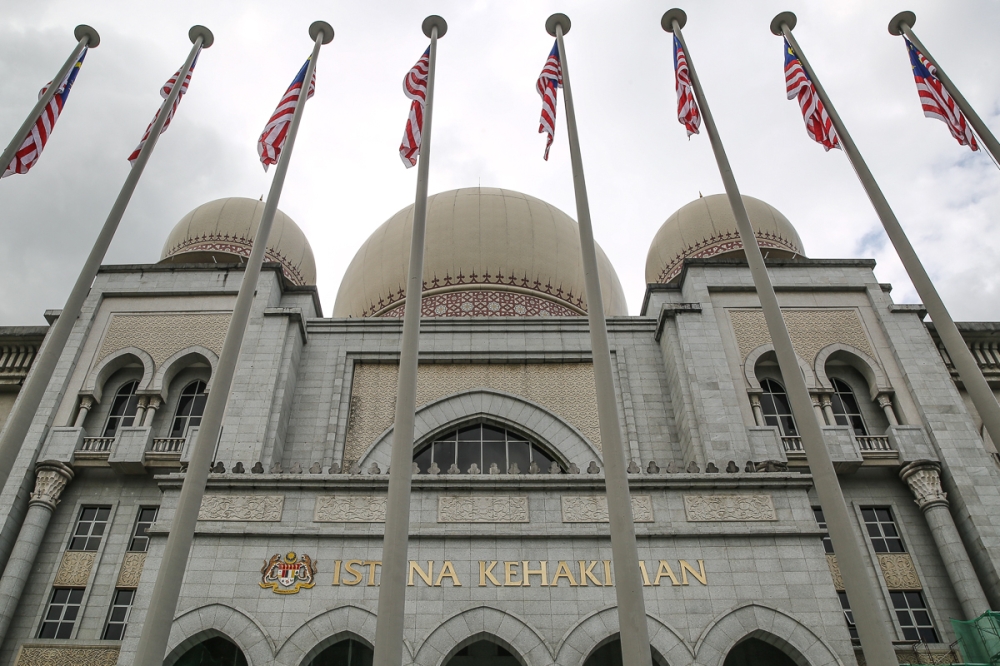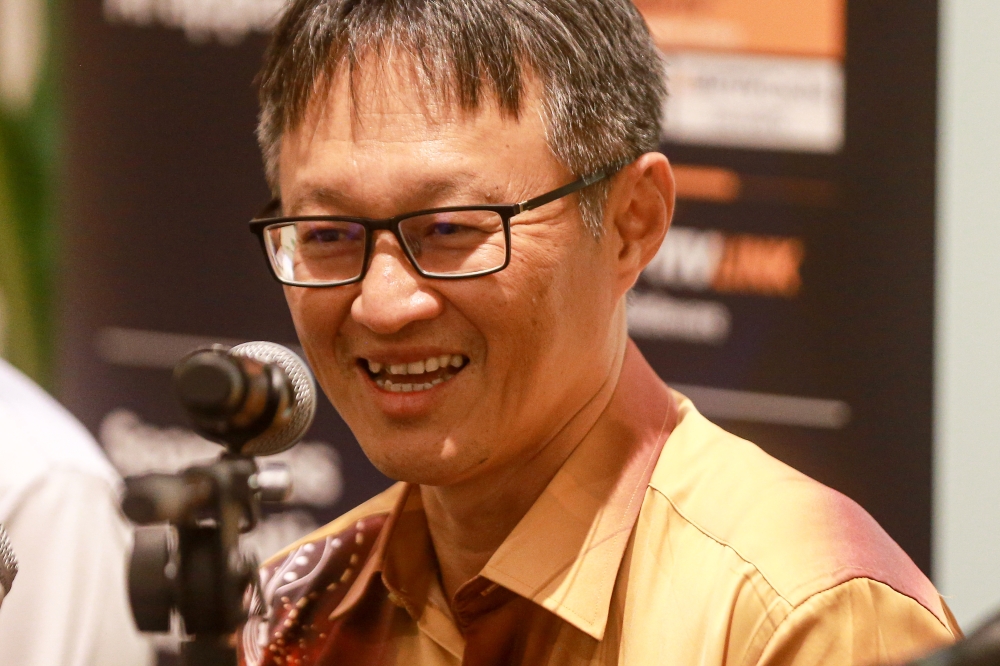KUALA LUMPUR, May 20 — How much of a role does Malaysia’s prime minister play in the selection and appointment of the country’s judges?
And how have things changed before and after the Judicial Appointments Commission (JAC) was created in February 2009? And where do we go from here?
1. Before JAC and before the viral video: When only appointment process was stated
Under the Federal Constitution’s Article 122B, the Yang di-Pertuan Agong — acting on the prime minister’s advice and after consulting the Conference of Rulers — appoints judges of the High Court, Court of Appeal, Federal Court and the top four judges including the chief justice (CJ).
Before giving his advice, Article 122B requires the prime minister to consult others such as the CJ and one of the other top three judges — President of Court of Appeal, Chief Judge of the High Court in Malaya and Chief Judge of the High Court in Sabah and Sarawak — depending on the position to be filled.
To be qualified as a judge, the Federal Constitution’s Article 123 only says you have to be:
- a Malaysian
- had been a lawyer, a member of Malaysia’s judicial and legal services, or a member of a state’s legal service in the 10 years before appointment as judge.
The Constitution does not give other details such as how a judge would be selected and what standards they should have.
This changed after the VK Lingam tape scandal erupted on September 19, 2007, involving a video clip of a December 2001 phone conversation between a senior lawyer and a top judge on the alleged brokering of judges’ appointments and promotions.
The Malaysian Bar on September 26, 2007 proposed a JAC to restore public confidence in the judiciary, and the Royal Commission of Inquiry (RCI) on the Lingam tape scandal in its May 2008 report also recommended setting up a JAC.
2. What is the JAC?
Before this, the Federal Constitution only stated the process for appointment of judges.
The JAC now fills in the gap by stating the process for selection of potential judges. So it is now like a two-step process.
Simply put, the JAC filters and selects candidates for recommendation to the prime minister, before the prime minister gives advice to the Agong for the judges to be appointed.
Based on the JAC Act 2009, the JAC has nine members:
- the top four judges, including the CJ who chairs the JAC
- five persons appointed by the prime minister: a Federal Court judge, and four eminent persons who are not members of the executive or public service
This means the prime minister effectively controls the majority of appointments to the JAC, although the JAC Act does require the prime minister to appoint the four eminent persons after consultation with legal professional bodies and the attorney general.
The PM can revoke the four eminent persons’ appointments any time without giving a reason, and decides the allowance amount paid to JAC members.
Based on regulations made under the JAC Act, JAC can receive either applications from candidates themselves for High Court vacancies or proposed names such as from the judiciary’s current and outgoing top four judges as well as from eminent persons who have knowledge of the legal profession for Court of Appeal and Federal Court vacancies.
JAC then checks if these names are qualified to even be selected as judges.
3. What are the qualifications you have to be a judge in Malaysia?
Before this, Malaysians only knew that a potential judge had to be a Malaysian with 10 years’ of relevant legal experience (based on Article 123).
Now, with the JAC, there is a detailed list of standards that a candidate must meet:
The JAC Act’s Section 23 requires a candidate to:
1. Be qualified under Article 123
2. Meet five criteria:
- integrity, competency and experience
- objective, impartial, fair and good moral character
- decisiveness, ability to make timely judgments and good legal writing skills,
- industriousness and ability to manage cases well,
- physical and mental health.
3. Not be appointed if the candidate is a judge who has at least three unwritten judgments that have been overdue for at least 60 days
On top of that, the JAC’s website has a detailed list of 10 minimal essential qualities to be a judge, including integrity (which should be undisputed), legal knowledge and ability, professional experience, diligence, and health.
As part of those 10 points, JAC also evaluates a candidate’s judicial temperament — such as not being arrogant, impatient or arbitrary; being fair and calm — and financial responsibility, as it is important to predict if they can resist pressure that might compromise their independence.
As part of the selection process, JAC’s secretary has to send potential candidates’ names to be screened by five agencies: the police, Malaysian Anti-Corruption Commission, the Companies Commission of Malaysia, Department of Insolvency Malaysia and the Inland Revenue Board.
This is based on regulations created under the JAC Act.
4. Voting to select the candidates
At JAC’s selection meetings, there must be at least seven JAC members, and their votes on candidates must be by secret ballot and by majority decision.
5. How do JAC’s recommended names go to PM?
The JAC then submits a report to the PM on its recommended candidates and the reasons why it selected them.
JAC has to give at least three candidates’ names for each High Court judge vacancy, and at least two names for each vacancy for the more senior roles: the top four judges, Court of Appeal, Federal Court judges.
However, after receiving the report, the PM may request two additional names for the more senior roles.
After the PM accepts any names from JAC, he then gives his advice to the Agong under Article 122B. So it is still the Agong who appoints judges based on the PM’s advice.
6. What are some safeguards in the JAC Act?
JAC’s members will stop being a member for reasons such as turning bankrupt, being of unsound mind or incapable of discharging his duties, or convicted for fraud or corruption offences.
JAC members cannot attend a meeting to select candidates, if they are being considered as a candidate or if they are “related” or “connected” to a candidate.
- Related: Nine categories including if the candidate is JAC member’s sibling, uncle, aunt, cousin, spouse, ex-spouse; family member of spouse or ex-spouse
- Connected: Eight categories including if the candidate is JAC member’s nominee, partner, director in JAC member’s company
An offender may be fined up to RM100,000, jailed for up to two years, or both, if you commit any of these offences under the JAC Act:
- As a JAC member, fail to disclose your relationship to a candidate
- Anyone who influences or attempts to influence the decision of JAC or any JAC member
- Anyone who gives false or misleading information to JAC in support of any candidate for JAC’s selection
7. Why is JAC in the spotlight again?
On April 8, Chief Justice Tun Tengku Maimun Tuan Mat’s 24th Commonwealth Law Conference speech noted recent proposals for legal changes “to remove the role of the prime minister in the appointment of judges”, which she said would help ensure that the process remains based “on merit and free from any perception of political influence”.
Also on April 8, lawyer Datuk Syed Amir Syakib Arsalan Syed Ibrahim filed a lawsuit to ask the High Court to declare the JAC Act as unconstitutional and invalid, and to get a court order for the prime minister to follow the Article 122B process to appoint judges without JAC’s “interference”.
The lawyer has also applied for a court order to temporarily suspend the JAC Act’s mechanism and for the PM to still be allowed to give advice to the Agong to appoint judges without being subject to JAC’s recommendations, pending the resolution of his lawsuit.
The High Court will be hearing on June 25 the lawyer’s application to temporarily allow the PM to skip following JAC’s recommendations of candidates when giving advice while also enabling the appointment of judges to go on, and will hear the lawsuit on July 16.
On April 9, Prime Minister Datuk Seri Anwar Ibrahim said the government would defend the JAC Act’s validity in court but also comprehensively review the JAC’s framework to ensure judicial independence.
8. What are the existing suggestions to reform judicial appointments in Malaysia?
The Bingham Centre for the Rule of Law’s 2015 report on the Commonwealth’s best practices for appointing judges noted that 81 per cent of Commonwealth countries — Malaysia among them —had a Judicial Appointments Commission (JAC) responsible for selecting or shortlisting candidates, making it increasingly uncommon for such appointments to be handled solely by the government’s executive branch.
Local legal experts have also in a recent forum said the JAC has brought much-needed reforms to Malaysia’s judicial appointments process and should be retained, with improvements, while also suggesting the prime minister continue to play a limited role in the entire process.
Over the years and under the tenure of different PMs, many in civil society had pushed for reforms to the process of selecting judges in Malaysia and to enhance the JAC, including the Malaysian Bar — as early as December 2008 when it commented on the Bill for the JAC Act and even until now — and institutional reform group Bersih, through its 2021 policy research report.
The Conference of Rulers had also on November 30, 2022 proposed removing the PM’s role to appoint JAC members and to give this role to others such as a parliamentary select committee, the Malaysian Bar and its counterparts in Sabah and Sarawak.







